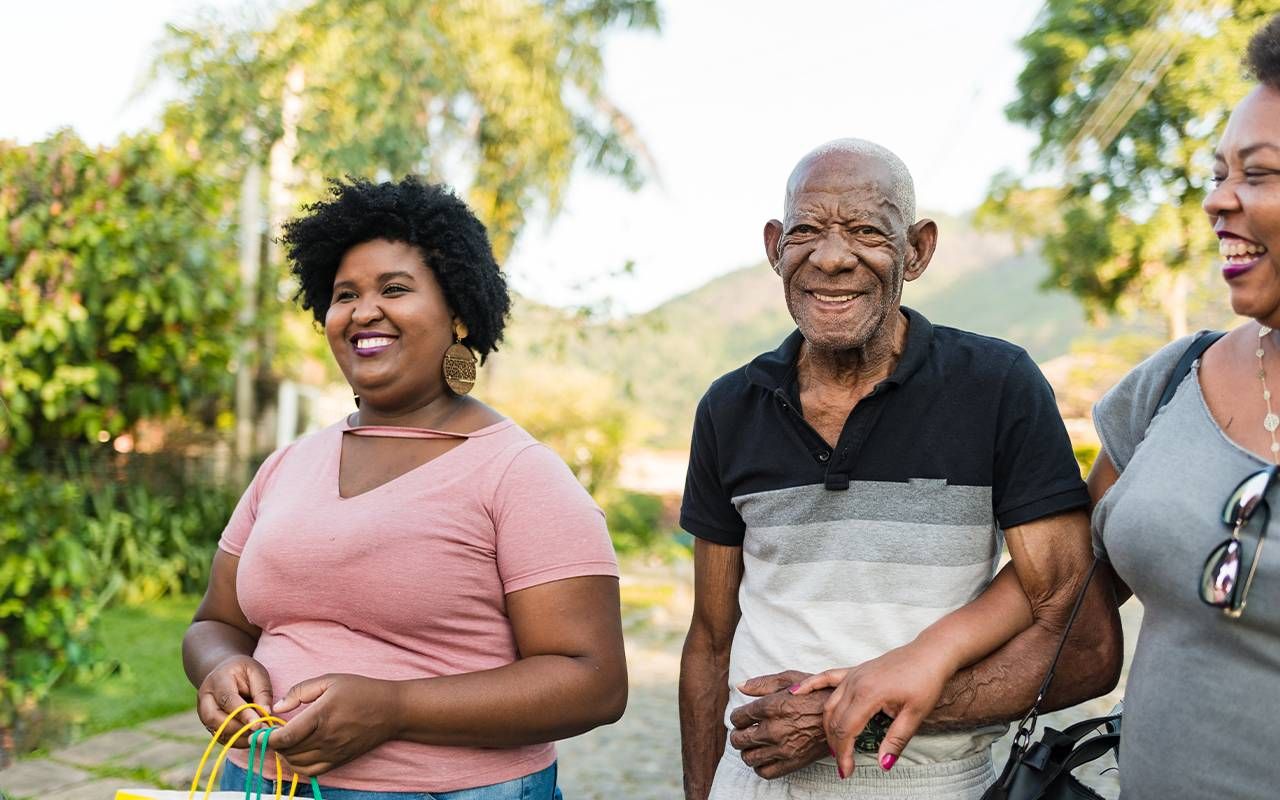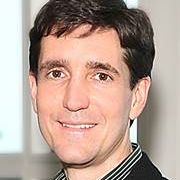Grand Caregivers: Lessons Learned While Caring for Grandparents
With the increase in multi-generational families, grandchildren play a more prominent role in caring for grandma and grandpa
Wisconsin Senator Tammy Baldwin was raised and cared for by her maternal grandparents as her mom struggled with mental health and substance abuse challenges. As her grandparents got older, Baldwin returned their love and cared for them.

"Having served as my grandmother's primary caregiver, I know the vital role family caregivers play in keeping their loved ones safe and well in their own homes."
In her mid-30s, when Baldwin's political career was rising, she began caring for her "Nana." Baldwin saw first-hand the emotional and financial challenges family caregivers face and the lack of resources and support for folks in her position.
"Having served as my grandmother's primary caregiver, I know the vital role family caregivers play in keeping their loved ones safe and well in their own homes. But too often, the hard work of family caregivers goes unrecognized and uncompensated, despite the sacrifices they make and the frequent levels of high stress, frustration and exhaustion they experience," says Baldwin.
Helen "Pixie" Hicks was lovingly cared for by her grandson, David Dunham, until she passed away at age 98 in 2012. Dunham balanced the demands of caregiving with his full-time position at the University of California at Berkeley.
An estimated 5.3 million, or 8% of all caregivers over 18, are grandchildren, according to a report by the National Alliance for Caregiving and AARP.
Dunham, now 52, was the primary caregiver to Grandma Helen, who lived at his home for three years because the family felt that family home care was a much better alternative to nursing homes and could not afford 24/7 paid caregivers.
Dunham received help from his wife, who worked full-time as a teacher, and his mother, who was disabled, but provided as much support as she could. "Managing the stress related to daily caregiving was very challenging, but there were great rewards that came with the responsibility, such as returning the love and care that my grandmother unconditionally and generously gave to me all my life," says Dunham.
These stories of grandchildren caring for grandparents are becoming more common. An estimated 5.3 million, or 8% of all caregivers over 18, are grandchildren, according to a report by the National Alliance for Caregiving and AARP.
More recently, in Florida's Youth Risk Behavior Survey of 10,880 adolescents, researchers found that 24% of middle schoolers and 16% of high schoolers self-reported some caregiving at least every week. The COVID-19 pandemic accelerated the additional burden on youth to provide care for grandparents.
"As a family, we worked together as a team to provide most of his care, and that has meant a lot to all of us."
"We believe the number of youth providing care is much higher now because of COVID," says Connie Siskowski, PhD, founder and president of the American Association of Caregiving Youth. "Multi-generational households will increase further as the population ages and young adults move home, so that will mean more grandchildren will be involved in caregiving."
The Olsons are one of those multi-generational families. When Samantha Olson was eight, her grandparents moved in next door so the family could care for her grandfather, who had multiple sclerosis. Olson recognizes how lucky she was to grow up helping her grandfather. "As a family, we worked together as a team to provide most of his care, and that has meant a lot to all of us."
Caregiving at All Ages
How grandchildren care for grandparents varies considerably based on age and ability – and whether a parent is involved in caring for grandma and grandpa. Older grandchildren may serve as primary caregivers, sometimes forced to leave their jobs and postpone personal and professional ambitions.
Activities can range from everyday tasks like cooking and taking them to doctor appointments to more strenuous duties such as bathing and feeding loved ones. Even younger grandchildren can play an essential role in caring for a grandparent. Their role is frequently less defined than young and older adults, but kids and teenagers can make ordinary tasks a critical part of overall care.
"Getting an occasional glass of water for grandma is not necessarily a caregiving task, but if a grandchild is asked to provide grandma with water on an hourly basis so she doesn't become dehydrated, then that becomes a caregiving job," explains Siskowski. "Some grandchildren take on a lot of responsibility."
Caring for a grandparent often puts grandchildren in a challenging situation – resulting in role conflicts and potential changes in the dynamic of the grandchild-grandparent relationship. Younger grandchildren still in school can be affected in different ways through missed classes, handing in late homework, or not having time to do after-school activities.
Teepa Snow was about ten years old when her maternal grandfather moved into their home in Pittsburgh after her grandmother passed away in Cleveland. Snow watched her grandfather, who was in his 70s, before her mom got home from teaching and sports activities around 6:30 pm.
"My grandfather was adamant that dinner needed to be on the table at 5:00 pm and there needed to be meat, potatoes and vegetables on his plate," she recalls. "I learned to cook simple things and have them on the table at 5:00 pm."
As her grandfather's lung problems worsened from his previous smoking habit and chewing tobacco, Snow stayed around the house more to ensure he got the help he needed. "It was sometimes boring to have to hang around the house when instead I wanted to go out with friends from high school or go hike in the woods," she recalls.
Finding Balance
Regardless of age or circumstance, caring for grandparents is challenging and disruptive to grandchildren's lives. Sara Gerilee Fischer, 35, of Hatboro, Pennsylvania, knows the challenges first-hand. Fischer, who lost both parents as a teenager, developed a close bond with her grandmother, Lois Vinter. "She was my best friend – we talked several times each day – and when she got sick with cancer I knew that I would take care of her."
"My Mom took care of people all of her life. She deserved to be taken care of by family during her last few months.
Rather than arrange for her to live in a nursing home, Fischer moved her "Mom Mom" into her house. It was a long 12 months, and there were times when Fischer had to leave the house to clear her mind because it was so overwhelming, but she would do it all over again. "My Mom took care of people all of her life. She deserved to be taken care of by family during her last few months."
When grandchildren face the possibility of being a caregiver, several guiding principles can assist with the new role, says Siskowski, who cared for her grandfather, who suffered from congestive heart failure, during her middle and high school years.
"My mom worked two jobs, and my grandmother didn't really have a "caregiving gene," and since I was very close to him, he relied on me for a lot of care and support," she says. "I was the one who found him passed away in his bedroom."
"Not every grandchild is going to be a full-blown caregiver, but knowing that sitting down and holding hands and having a conversation can be very therapeutic for a grandparent," adds Siskowski.
Many national and local health agencies provide a variety of resources for caregivers. For instance, the U.S. Administration on Aging offers an online locator to find assistance with meals, health insurance, and local transportation.
It's essential to find a support system, says Dunham.
"Grandchildren should be open to the experience of caregiving for their loved ones but should find as many resources as possible from their community of family, friends and fellow caregivers," he says. "Find a way to continue to have balance in life and do things that you most love and cherish, even if you do them less often."


